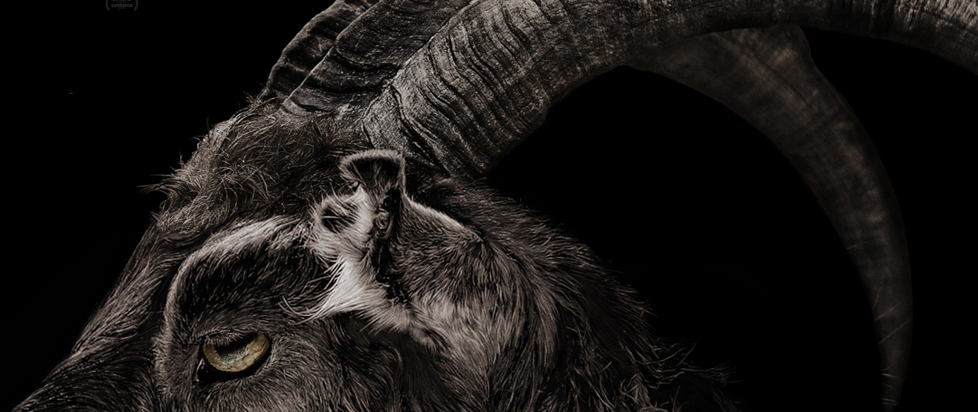
The Best Movies of 2019
It’s been a rough year for movies. Personally I found myself unable to come up with a selection of ten that I would use to populate a best of the year list – it’s been a year of big budget Marvel, of quiet art house films that have yet to make it out of big cities, of noted directors making their Netflix debut. This isn’t a dissection of taste or class – though several of the films that populate our best of the year list tackle issues of wealth and class.
It’s the finale of a decade, and unlike with a console generation, that doesn’t mean we’re going to get the best films – artisans finely honing their craft on a piece of hardware before it inevitably upgrades. With film, 2019 is just another year, another moment.
So dance through a Scandanavian field with a flower crown. Document the story of a kid just trying to make it on a lip sync app. End your 20+ film, decade spanning cross-media storyline with a whimper rather than a bang. It’s 2019 baybe and we’ve got movies for you to see, and the best of the year list to read that may or may not include the films referenced in this editorial note.
What would an Unwinnable best movies of the year list be without a maudlin opening from the editor? The following films are in order, with the best of the year listed at the bottom.
– Amanda Hudgins, Curator

The Irishman
Despite the reputation for bombast and excess that Martin Scorsese’s crime films have acquired over the years, the quiet scenes in The Irishman have the biggest impact. A standout is the breakfast conversation in which Russell Bufalino (Joe Pesci) explains to Frank Sheeran (Robert De Niro) over cereal and coffee that he has arranged for Sheeran to murder one of their closest friends. Sheeran looks on silently, unwilling or unable to object or suggest an alternative, maybe not comprehending the ramifications of what he is about to do.
This is the film’s trajectory: a bunch of guys enjoying and exploiting the unique circumstances of the United States’ post-war boom while destroying their communities, their families, and their futures in the process. There is no epiphany for Sheeran and the rest, though. Decades later, Sheeran feels no remorse and finds no closure in trying to navigate the emptiness of his last years.
Scorsese outfits The Irishman in his trademark style. Long takes, sharp edits, montages of brutal violence – all of it is in here. But the energy is different. The excitement that coursed through Goodfellas is gone, replaced by something more elegiac, or maybe pathetic.Sheeran has a wild story to tell about a life spent on the right side of Jimmy Hoffa, but in the end there’s no one around to listen to him.
– Adam Boffa

Alita: Battle Angel
I’m not overly familiar with the source material of Alita: Battle Angel, a live action rendition of a Japanese manga that director James Cameron has been babysitting since the late 90’s until finally bringing Robert Rodriguez into the mix to finish what he couldn’t. It is remarkable that this movie even exists, and that unlike Cameron’s other multi-decade passion project Avatar, it doesn’t suck.
Despite its almost twee Hunger Games–esque teen movie affections, Alita: Battle Angel is a fantastic dissection into decently heavy themes about bodily autonomy and growing up – Astrid Budgor gets into the specifics of how the movie deals with the concept of bodies and dysphoria. Would that I could’ve been blessed with such a teen movie when I was a middle school goth – but thankfully it exists now.
– Amanda Hudgins

Godzilla: King of the Monsters
I didn’t have an opportunity to see the latest US Godzilla film in theaters, so I was a bit…let’s say “hesitant”…when I finally sat down to watch it this past November. A lot of people were saying it was really bad, you see. And you know what? They were absolutely right. But they were also absolutely wrong.
I completely agree that Godzilla: King of the Monsters is a dumb, disjointed, objectively Not Good film. But it’s not the bad kind of bad. It’s actually the clever kind of bad.
Let’s be real here, the older Godzilla movies were almost universally not good. Some of them (some) were decent, or even good, but most of them were really, really stupid and bad. And this is why King of the Monsters is so great: it’s constantly homaging the older cornball films in ways that work. Musical cues, sounds inlaid with certain monsters’ roars, a nod to twins, pretty much all of the stupid things in the script – it’s all Classic Godzilla, and I couldn’t be happier about it.
– Rob Rich

Knives Out
Knives Out is a ROMP. That’s a good thing. It’s a fun, silly, endearing ride through a bizarre twisty, turny passage. In an era of internet critique that demands internal consistency, tonal hegemony and is constantly chasing after some mythic kind of “fun,” Knives Out manages to be a really enjoyable time that tickles a really particular bone.
It’s kind of awesome that the movie kind of forgets its most interesting question very, very early. It’s an entirely solvable mystery but that’s not really the main draw here. You don’t go on a roller coaster because you know that by the end all of the potential energy will be mostly converted to kinetic and friction. You get on for the ride itself.
Sure, there’s some underutilization issues here. The movie forgets some of its characters or why it cast certain actors in those roles; casting a lot of big names serves to obfuscate the “real” killer but it also means they’re competing for a limited number of lines. Also why are we having a Don Johnson Resurgence?
It’s a great little piece of movie making.
Just don’t go overthinking it.
– David Shimomura

Hustlers
The immediate thought that went though my head as I watched Hustlers back in September (apart from being impressed at how good it was) was that it somehow had a weird feeling of familiarity to it: “Yhis somehow feels like The Big Short.” Apart from being linked in their settings by the 2008 financial crisis, the two films have the similar theme of gaming a broken, amoral system, only for the players to end up being broken by the end as well. And as I sat there in the theater watching the credits, my weird feeling became justified: one of this movie’s producers was Adam McKay, director of 2015’s The Big Short. So, I wasn’t just imagining things, and as the months went by and I reflected on 2019’s movies, Hustlers ended up as one of my favorites of the year. While it isn’t a smug but intelligent and funny history lesson like The Big Short was, it is vastly more empathetic and stylish (thanks to Lorene Scafaria’s near pitch perfect direction and writing), while still being pretty damn funny. Hustlers went an extra mile by examining how people who were nowhere near the banking sector were impacted by the great recession, yet still fell right into a similar trend of screwing people out of their money, with the only difference being that the sex workers faced more jail time than the bankers who ruined the whole economy.
It might sound weird to call Hustlers “empathetic,” but that is one of its core attributes that not only makes its cast of characters more identifiable and likable, but also is a driving force that gives this film a depth and humanity that you don’t see too often in comedy-crime movies of its type. Here, the family of Destiny (the protagonist played by Constance Wu) is a driving force for her, with her grandmother and her own daughter being who she always cares about no matter what, and the same goes for the other three central characters of Ramona, Mercedes and Annabelle; they’re either a primary caretaker for someone else, or they have to take care of themselves after losing their support system for being a sex worker. Lack of empathy ends up being the undoing of the ringleader Ramona (played superbly by Jennifer Lopez) who’s busted after taking in a mark who didn’t deserve to be swindled and loses everything because of her, while Destiny’s care for others saves her, as she ends the whole scheme and takes a plea deal against the others so that her own daughter doesn’t end up alone. The movie itself ends on a possibly hopeful note of Ramona wanting to reconnect with Destiny, and the final perfect scene being the four women enjoying themselves at a party, before everything went so wrong for them. You can have lot of fun with the men of The Big Short, but the women of Hustlers are who you have fun with and end up feeling for.
– Evan Dennis

Booksmart
Olivia Wilde’s directorial debut, Booksmart, had me laughing like few other movies ever have. Maybe it’s because I saw my queer, overachieving, party-hating teenage self in Amy, or maybe it’s just because it’s honestly that funny, but I came away wanting to show this movie to everyone important in my life. Yes, my mom. Yes, even the scene where Amy and Molly accidentally blast porn in an Uber driven by their school principal.
There’s a temptation – at least for me – to make choosing anything for a “best of the year” list into something more profound than just genuinely enjoyable. That’s what Booksmart is: a fun, funny, genuinely enjoyable film. I don’t think that it has to be anything more than that, with its cast of genuinely lovable, flawed, human characters, to be worthwhile.
In truth, Booksmart is a fairly standard coming-of-age film. Two best friends who’ve dedicated their high school careers to their studies try to attend a rager. Shenanigans ensue. They learn more about one another and the adults they’ll eventually become.
But that touches on nothing that makes the movie special – the emotional, almost too-real performances by Beanie Feldstein and Kaitlyn Dever, the intentional comedy, which doesn’t let the heroines off lightly for the way they treat others, and even just the presence of textual queerness in a lighthearted coming-of-age film all do the work in elevating Booksmart above many movies of its kind.
It’s that lightheartedness that does it for me. Booksmart is a good comedy, but it’s a good comedy with things that, until fairly recently, weren’t treated with kindness and humanity by mainstream media. It’s a movie where a lesbian and her best friend get to be smart and rowdy and judgmental and petty and kind, and that’s enough for me to value it for what it is – a funny, smart movie – and for what it can mean to a generation of people who get to see themselves represented as flawed but wonderful human beings in a way that I never did.
– Melissa Brinks

The Last Black Man in San Francisco
At first glance, this is a film solely about gentrification and the effect it’s had on predominantly black communities. The avatar of this old San Francisco is Jimmie Falls, who plays himself in a performance brimming with charm and honesty; as you fall in love with him, you fall in love with the city itself. As a whole, the film feels like a poem from Joe Talbot to the city and his best friend, elegizing the complexities of (this version of) Falls and San Francisco, who both face an oncoming wave of change.
When you dig deeper you also find that there’s even more to it. Talbot weaves in smart and interesting takes on black masculinity, often explored through the brilliance of Jonathan Majors and Jamal Trulove. There’s also an exploration of what family means and an interrogation of our relationship to property and places.
On a technical level, The Last Black Man In San Francisco is stunning, with an incredible visual poetry, alongside the best score of the year by far. All of this comes together to take the audience on a rich, emotionally resonant and beautifully performed journey to the heart of a changing man and a changing city.
– Oluwatayo Adewole

Midsommar
As a fan of horror films and pagan rituals (especially the 1973 Wicker Man, based on David Pinner’s 1967 novel Ritual), I went into Midsommar with high expectations – and was not disappointed. The film follows Dani, a college student dealing with family trauma who follows her boyfriend to a Swedish commune to witness a midsummer ritual. After seeing an elderly couple commit senicide, some of the other outsiders decide to leave – only to abruptly disappear. Things take a turn for the worse as the remaining outsiders dance and feast, trying and often failing to communicate with the cultists and with each other. The lush landscapes, the floral crowns, the costumes make the setting look like an Instagram influencer’s paradise: except, of course, for the murders. Despite the dreamy cult setting and gruesome slasher scenes, the film’s emotional arc is all-too-familiar: following a distant partner, agreeing to things you don’t really want, watching your relationship crumble around you. That’s horror at its finest.
– Deirdre Coyle

Parasite
Bong Joon-ho’s Parasite is a parable about how destructive aspirational wealth fairy tales are. The film focuses on two families – one destitute and one obscenely wealthy. The first family we meet is the poor Kim family, who live in a basement apartment that’s constantly getting pissed on by a local drunk. The other family is the rich Park family who seem nice at first glance, but their material wealth blinds them to the daily struggles most people go through to get by.
When the Kim’s college-aged son, Ki-woo, is offered a position tutoring the Park’s daughter, Da-hye, English, the Kim family infiltrates all the service jobs in the Park house. Ki-Woo’s sister, Ki-jeong, becomes the Parks’ youngest son’s art teacher. Their father becomes Mr. Park’s driver and their mother becomes the Park’s new housekeeper. The rub is, the Parks don’t know the Kims are related.
There is a sequence in the film where the Park family go camping for the weekend. The Kims decide to crash at the Park family’s house while they’re away and discuss about how the Parks’ wealth is the only reason they are “nice.” As the family talks over the merits of this argument, Mrs. Kim gets a call from Mrs. Park saying they are coming home and that their son wants Ram-Don ready when they get home.
Ram-Don is a poor person‘s meal. It’s a mix of Ramen, Udon and whatever leftover veggies you have in the fridge. When Mrs. Kim gets the call, the family starts cleaning up and hiding whilst Mrs. Kim prepares the meal. Here’s the thing though, the Ram-Don the Park boy wants has an extravagant flourish – fresh sirloin steak. Mrs. Park busts her ass to get the food ready in time.
When the Parks get home, the boy has already changed his mind and goes to bed, so Mrs. Park absentmindedly noshes on the dish and contemplates throwing a party.
The Ram-Don scene foreshadows the Park’s disinterest in the lives of their help. The Kims are paid a fair wage, but they are paid to serve and the more time they spend with the Parks, the more the pursuit of financial prosperity poisons the Kims.
Oh, and I forgot to mention there is a man starving in a secret room in the Park’s basement.
Yeah, there is a lot in this movie and it’s goddamn prescient.
– Ian Gonzalez

Us
Jordan Peele’s follow up to Get Out is another finely crafted piece of allegorical horror (alle-gory?), this time with a bigger, bolder critique that expands beyond the suburbs to sweep across today’s America. Again this is a film about class and race relations, and again it refuses the obvious targets to aim its sights squarely at liberal middle-class life. Us probes the blinkered fixations of social mobility, the invisible human cost of consumerist aspirations and what happens when a society provokes desires for lifestyles that many citizens can never hope to attain.
As a horror film, Us subverts a classic formula by blurring the lines between its victims, the typical innocent American family, and its aggressors, the group of malformed, murderous psychos that turn up on the driveway one evening. With these doppelganger antagonists, twisted versions of each family member, we are faced with something terrifyingly alien and familiar at once. This is an enemy that comes from within society – the unnoticed, oppressed and resentful part of our world that was always there, as the inevitable underside of the middle class dream. And if they merely want what we have, it’s equally clear that we are only one step away from being like them. A gradual tonal shift in the film shows how quickly the sympathetic middle class can turn to violence themselves, and might even enjoy it more than their evil twins.
Us layers on these themes with some giveaway lines and exposition but also more subtly through its use of warm colors and touches of humor that contrast the tension and shocks. There are some conventional scares here and some striking imagery – not least the doppelgangers’ uniform of red boiler suits, leather gloves and scissors. But mostly this is a film that should leave us feeling afraid of ourselves.
– Jon Bailes




